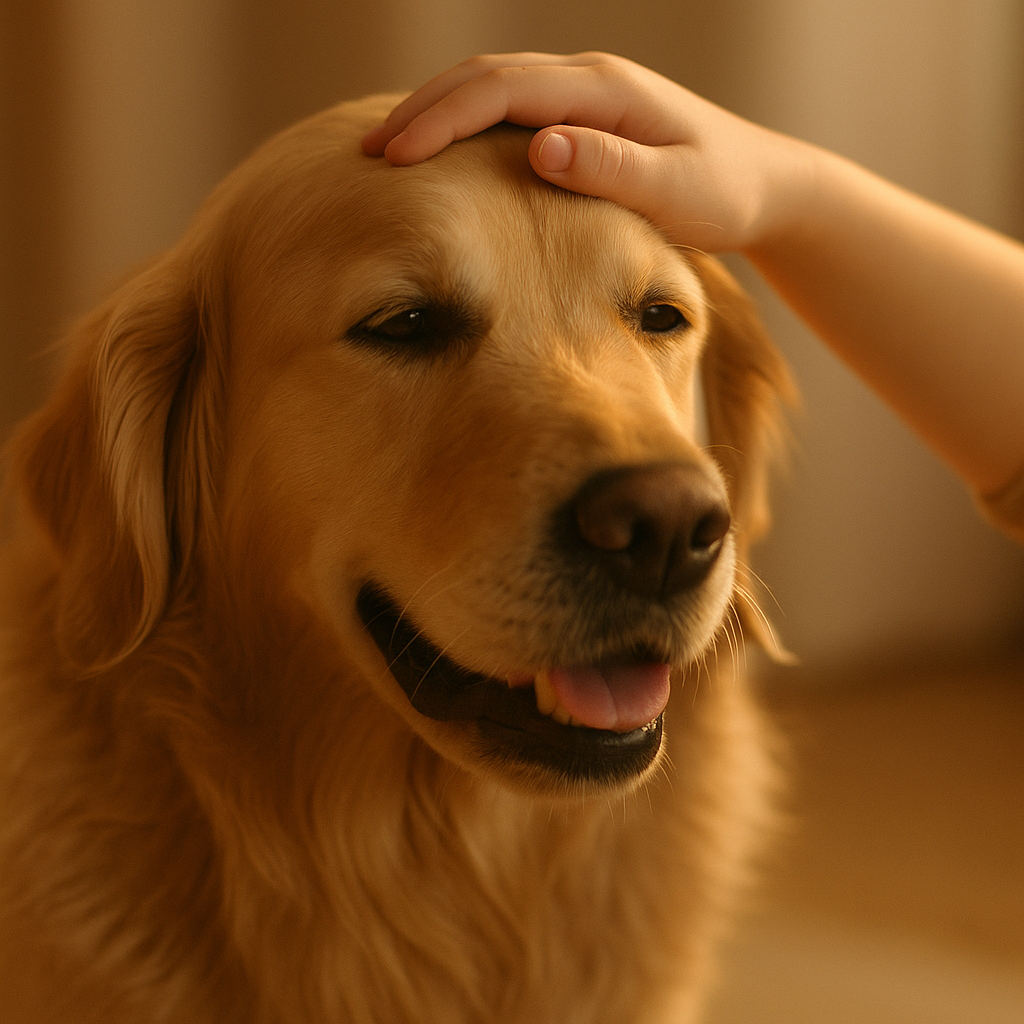Golden Retrievers: Are They the Perfect Family Dog?
Share
For decades, the Golden Retriever has reigned as one of America's most beloved family dogs, and for good reason. Their sunny disposition, gentle nature, and classic good looks make them a popular choice for families of all shapes and sizes. But is the "perfect family dog" label always accurate? While their temperament is second to none, responsible ownership requires understanding their daily care needs and significant health considerations to ensure a happy, healthy life together.
The Famous Golden Temperament: Friend to All?
Golden Retrievers are famous for their sweet-natured, affectionate, and loyal personalities. They are generally friendly with everyone they meet, including children, strangers, and other pets. This friendly nature is a hallmark of the breed.
- Born to Please: Goldens are highly intelligent and possess a strong desire to please their owners. This combination makes them relatively easy to train, even for novice owners. They respond beautifully to positive reinforcement and thrive on learning new things.
- Gentle with Children: Their reputation for being great with kids is well-earned. They are typically patient and gentle, making them wonderful companions for children. However, it's crucial to remember that their good nature isn't a substitute for training and supervision.
- The Importance of Socialization: To nurture their friendly disposition, early and consistent socialization is key. Exposing your Golden puppy to various people, places, and other animals will help them grow into a well-adjusted, confident adult.
- Supervision with Young Children: While gentle by nature, Goldens are still medium-to-large, exuberant dogs. Their happy tail wags and playful bounces can accidentally knock over a small toddler. Therefore, all interactions with very young children should be supervised.

Daily Care: More Than Just Cuddles and Fetch
While Goldens love a good cuddle session, their needs extend far beyond the couch. They are active, social dogs that require dedicated daily care.
- Exercise Needs: Don't let their relaxed indoor demeanor fool you. Golden Retrievers are sporting dogs that need 60-90 minutes of daily activity. This should include a mix of physical exercise like running, swimming, or vigorous games of fetch, as well as mental stimulation through training and puzzle toys.
- Grooming Requirements: That beautiful golden coat comes at a price. Their thick double coat requires daily brushing to prevent mats and control shedding. Be prepared for heavy seasonal shedding, often called "blowing coat," when clumps of fur will become a part of your home's decor.
- Social Butterflies: Goldens thrive on being part of the family pack. They are not suited to being left alone for long hours and can develop separation anxiety, which may lead to destructive behavior. They are happiest when they are right in the middle of family life.
Critical Health Considerations for Golden Retrievers
While generally healthy, Golden Retrievers are predisposed to several significant health conditions. Responsible ownership means being aware of these risks and choosing a reputable breeder who performs extensive health screenings. Their average lifespan is 10-12 years.
| Health Condition | Description |
|---|---|
| Cancer | A high predisposition to various cancers, including lymphoma and hemangiosarcoma, is unfortunately common in the breed. |
| Joint Dysplasia | They are prone to hip and elbow dysplasia, which can cause pain, arthritis, and lameness. |
| Atopic Dermatitis | Skin allergies are common, leading to persistent itching, hot spots, and chronic ear infections. |
| Heart Conditions | Some Goldens are affected by genetic heart conditions like Subvalvular Aortic Stenosis (SAS). |
| Eye Conditions | They can inherit eye diseases such as Progressive Retinal Atrophy (PRA) and pigmentary uveitis. |
| Hypothyroidism | An underactive thyroid gland can affect their metabolism, leading to weight gain, lethargy, and skin issues. |
The Golden Retriever's gentle heart and friendly spirit make them an incredible addition to many families. By understanding and providing for their needs—from daily exercise and grooming to proactive health care—you can ensure this all-American dog is a perfect fit for your family.
